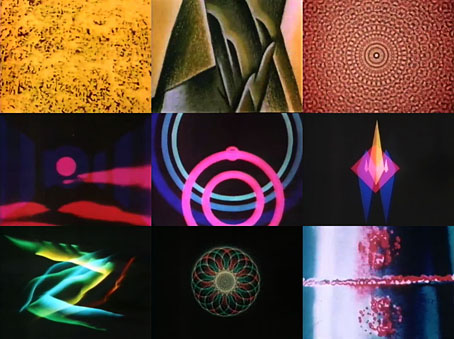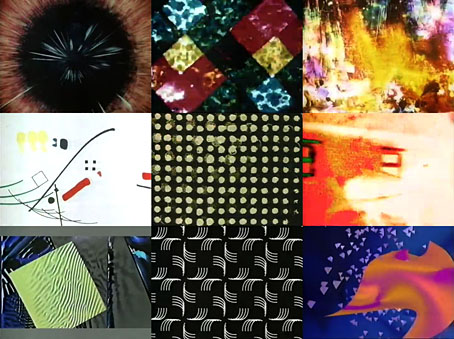Good to see this documentary turn up at last even if it is on a private YouTube channel affiliated to a site that hosts cinematic rarities. Abstract Cinema was made in 1993 for Channel 4 (UK) at the tail end of the period when the channel could be relied upon to screen resolutely uncommercial fare. The documentary was another production by Keith Griffiths, producer of many films with the Brothers Quay, and producer/director of a number of documentaries such as this, exploring the cinematic zones that television seldom acknowledges.
I’ve mentioned this programme a few times before because I taped it at the time, and still regard it as an excellent introduction to an idiom that many enthusiasts consider to be the purest form of cinema, as opposed to the theatrical storytelling that dominates the medium. Peter Greenaway has complained for years about the formulaic nature of contemporary feature films yet his own films, which are supposed to be an alternative to what he calls “dominant cinema”, aren’t so very different from the Hollywood norm in their reliance on actors, narratives, sets and the like. Abstract cinema avoids all of these things. Stan Brakhage is one of the filmmakers interviewed, and his own productions not only shunned sound, they even shunned the camera when he was painting directly onto the film strip. At the time of Griffiths’ interview Brakhage was doing this again using the comparatively larger canvas of Imax stock.
Griffiths’ documentary runs through the history of cinematic abstraction, from Oskar Fischinger and Len Lye (both the subjects of earlier Griffiths studies) to the 1990s when several of the interviewees had taken to programming computers to create their visuals. Griffiths made his documentary at just the right time. As well as having access to a TV channel that would present such work to an audience (albeit late at night), he was also able to interview a number of the leading practitioners while they were still around; in addition to Brakhage there’s John Whitney, Jules Engel, Pat O’Neill, Malcolm le Grice, Michael Scroggins and Vibeke Sorensen. Notably absent is Jordan Belson, possibly because he’s always been reluctant to discuss the production process that created his ethereal imagery, although film historian William Moritz discusses Belson’s work while guiding us through the history. What you don’t get here is the additional 25 minutes of abstract films that were broadcast after the documentary, an unprecedented event, and one that wouldn’t be repeated.
Elsewhere on { feuilleton }
• The abstract cinema archive



